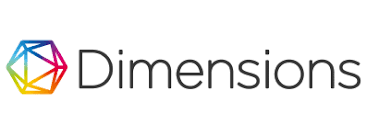IbM PADA ANAK SEKOLAH DASAR DENGAN STATUS GIZI KURANG
Abstract
Breakfast or breakfast provides an important meaning for everyone to start the activity throughout the day. This activity is carried out until nine in the morning. Breakfast should be able to meet 15% to 30% of the total daily nutritional needs. Breakfast is expected to be able to realize a healthy, active and intelligent life (Hardinsyah, 2013). School-age children require good and sufficient intake of nutrients for activities, especially during breakfast (Susyani et al., 2014). In addition to adequate and balanced nutritional content, menu choices must be practical and varied from various types of food ingredients (Ministry of Health, 2013). Breakfast is beneficial for good school attendance, nutrient intake, academic achievement, fitness and a healthy weight (Hardinsyah; Perdana, 2013). Meanwhile, the impact of not eating breakfast on children has been shown to have an effect on academic achievement at school (Muchtar et al., 2011). There are various reasons why children skip breakfast, namely, long distance to school, late getting up in the morning, not in taste, not used to or afraid of being late for school (Mardiana, et al, 2013; Irianto in Ristiana, 2009). The habit of not eating breakfast results in a decrease in blood sugar levels (hypoglycemia) so that the energy supply decreases, if this happens continuously it causes the body to tremble, get tired quickly and decrease motivation to learn (Wardoyo; Mahmudiono, 2013). According to Hardinsyah (2012) in Briawan, et al (2013), it is recorded that 20%-40% of Indonesian children do not eat breakfast every day. Hardinsyah and Aries (2012), stated that 44.6% of school-age children consume low-quality breakfast, which is below 15% of the daily nutritional adequacy. Lack of knowledge about the importance of eating breakfast in children is one of the factors that cause children to ignore breakfast (Notoatmodjo, 2012). Nutrition education needs to be given in order to achieve health behavior (Healthy Behavior). Based on the above background, it is necessary to provide counseling and examples of providing breakfast for school children.
References
Hardinsyah.2013.Sarapan Sehat Salah Satu Pilar Gizi Seimbang.Simposium Nasional Sarapan Sehat. 8 Januari 2013. Available at http://pergizi.org/images/sories/downloads/materi_PESAN/materi3.pdf (Diakses pada tanggal 15 Januari 2015).
Hardisyah dan Aries. 2012.Jenis Pangan Sarapan dan Perannya Dalam Asupan Gizi Harian Anak Usia 6 – 12 Tahun di Indonesia. Jurnal Gizi dan Pangan.Volume 7.Nomor 2. Available at http://journal.ipb.ac.id/index.php/jgizipangan/article/view (Diakses pada tanggal 5 februari 2015)
Kementrian Kesehatan.2011. Lembar Berita : Makanan Sehat Anak Sekolah. Jejaring Informasi Pangan dan Gizi Volume 28, Nomor 2. Available at http://gizi.depkes.go.id/wp-content/uploads/2012/05 (Diakses pada tanggal 11 Nopember 2014)
Mardiana, Eliza, Nurul SN.2013. Pengaruh Penyuluhan Gizi Metode Ceramah dan Leaflet Terhadap Perilaku Memilih Makanan Jajanan Murid di SD Negeri Kelurahan Sako Palembang Tahun 2012. Jurnal Kesehatan Politeknik Kesehatan Palembang. Volume 1, Nomor 11.
Muchtar M, Julia M, Gamayanti IL. 2011 .Sarapan dan Jajanan Berhubungan dengan Kemampuan Kosentrasi pada Remaja. Jurnal Gizi Klinik Indonesia. Volume 8, Nomor 1.
Notoadmodjo, Soekidjo. 2012. Pendidikan dan Perilaku Kesehatan. Jakarta: PT. Rineka Cipta.
Pratiwi, R.A. 2015. Pengaruh penyuluhan menggunakan media video game terhadap pengetahuan, sikap, konsumsi energi dan protein makan pagi pada SDN 177 dan SDN 187 Palembang.Karya Tulis Ilmiah. Jurusan Gizi Poltekkes Palembang.
Wardoyo HA, Mahmudiono T. 2013. Hubungan Makan Pagi dan Tingkat Konsumsi Zat Gizi dengan Daya Konsentrasi Siswa Sekolah Dasar. Media Gizi Indonesia.Volume 9.Nomor 1. Available at http://journal.unair.ac.id/article_3886_media70_category70.html. (Diakses tanggal 15 Desember 2014)
Copyright (c) 2022 ABDIKEMAS: Jurnal Pengabdian Kepada Masyarakat

This work is licensed under a Creative Commons Attribution-ShareAlike 4.0 International License.









